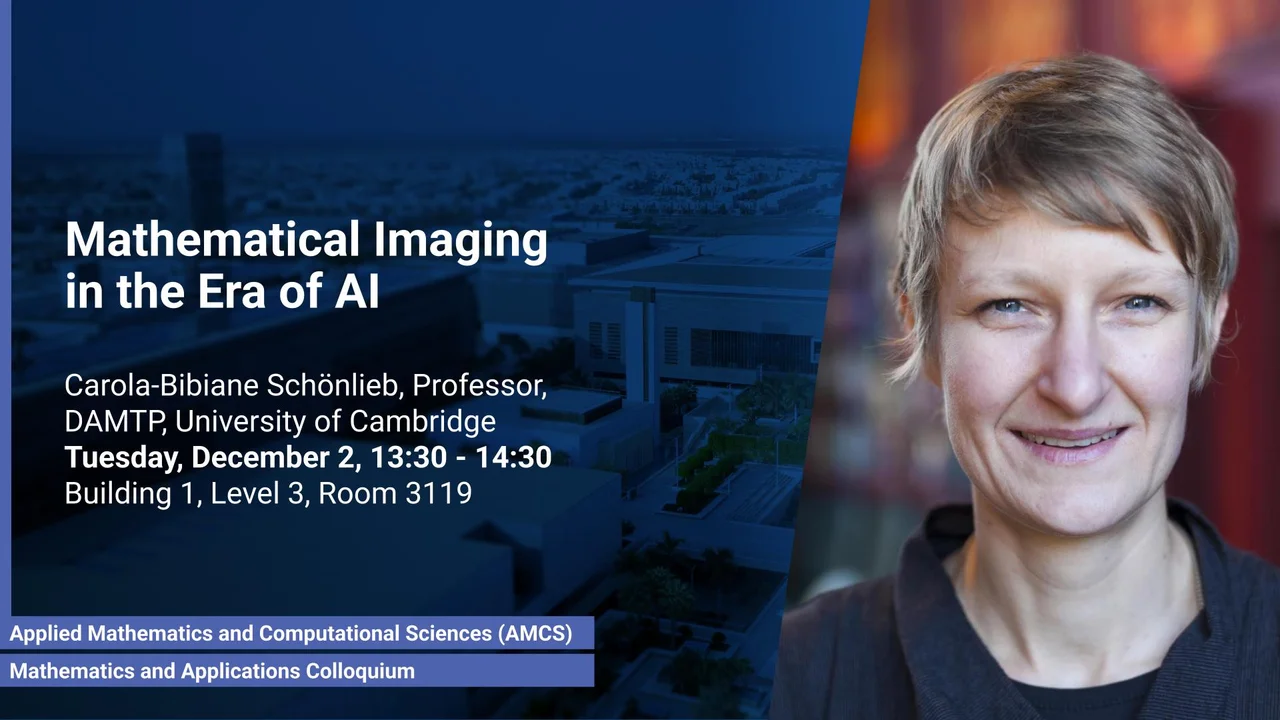
Mathematical Imaging in the Era of AI
In this talk, I will present mathematical imaging as a meeting point of classical analysis and modern AI. I will highlight how ideas from optimisation and mathematical modelling can guide the development of structure-preserving deep learning methods, offering new, principled approaches to large-scale inverse imaging problems.
Overview
Images are everywhere, from medical scans and satellite pictures to art restoration and astronomy, and extracting meaningful information from them poses fascinating mathematical challenges. Imaging has long been a catalyst for advances across optimisation, analysis, and computational mathematics. It brings together ideas from inverse problems, partial differential equations, variational methods, and statistics, all centred on the question: how can we reconstruct or interpret images from indirect, noisy, or incomplete data? The recent rise of artificial intelligence has transformed this field. Data-driven methods, especially deep neural networks, now achieve astonishing performance in image reconstruction and analysis. Yet, their success comes with new mathematical questions: how do we understand and trust these black-box models? What guarantees can we give about their stability, interpretability, and generalisation?
Presenters
Carola-Bibiane Schönlieb, Professor, DAMTP, University of Cambridge
Brief Biography
Carola-Bibiane Schönlieb is Professor of Applied Mathematics at the University of Cambridge, where she leads the Cambridge Image Analysis group. Since 2011 she has been a fellow of Jesus College Cambridge, and between 2016 and 2020 she was a fellow of the Alan Turing Institute in London. She also chairs the Committee for Applications and Interdisciplinary Relations (CAIR) of the EMS. Her current research interests focus on variational methods, partial differential equations, and machine learning for image analysis, image processing, inverse imaging problems, and the mathematical foundations of machine learning. She maintains active interdisciplinary collaborations with clinicians, biologists, and physicists on biomedical imaging topics, with chemical engineers and plant scientists on image sensing, and with artists and art conservators on digital art restoration.
Her research has been acknowledged by scientific prizes, among them the LMS Whitehead Prize 2016, the Philip Leverhulme Prize in 2017, the Calderon Prize 2019, a Royal Society Wolfson fellowship in 2020, a doctorate honoris causa from the University of Klagenfurt in 2022, a SIAM fellowship in 2024 and an ELLIS fellowship in 2025, and by invitations to give plenary lectures at several renowned applied mathematics conferences, including several SIAM conferences, the Applied Inverse Problems Conference, the FOCM, AIMS, GAMM, EMIM and ENUMATH.
Carola graduated from the Institute for Mathematics, University of Salzburg (Austria) in 2004. From 2004 to 2005 she held a teaching position in Salzburg. She received her PhD degree from the University of Cambridge (UK) in 2009. After one year of postdoctoral activity at the University of Göttingen (Germany), she became a Lecturer at Cambridge in 2010, promoted to Reader in 2015, promoted to Professor in 2018, and elected to the Professorship of Applied Mathematics (2006) in 2025.